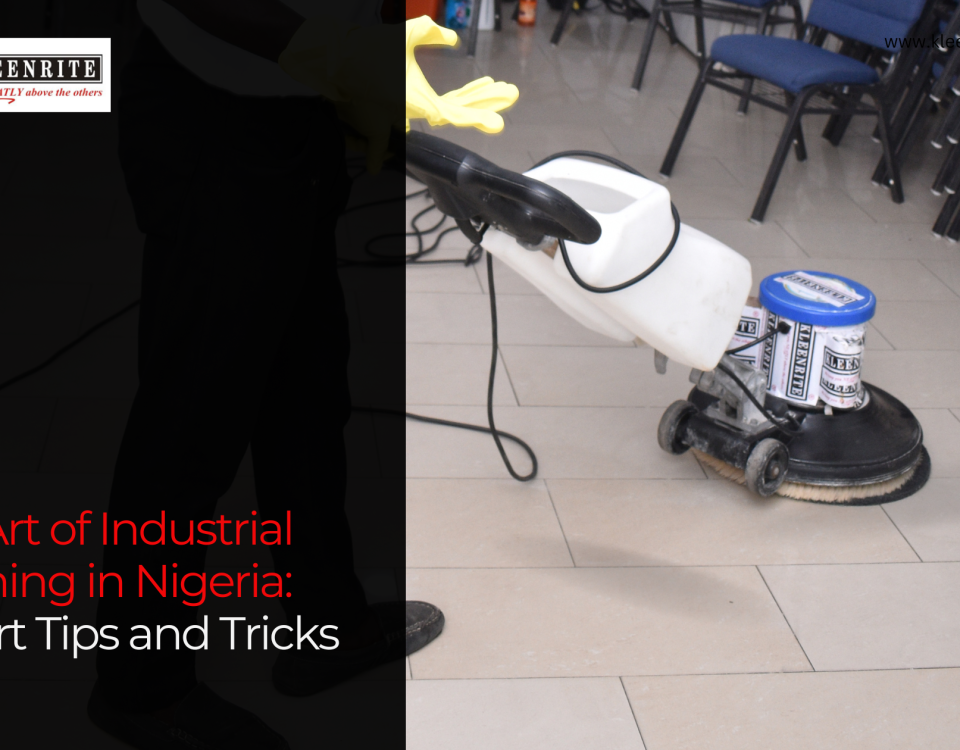5 Types of Mops Ideal for Home and Office Cleaning
September 16, 2019Do-It-Yourself Home Cleaning Checklist Part 1
November 13, 2019Amongst the jobs we have in Nigeria, cleaning duties is one which does not require a particular educational qualification or requirement. It’s one of those job/duties that you can learn while watching others do it. You don’t need to read a Cambridge textbook before you understand basic techniques for cleaning!
However, Cleaning in the hospital is peculiar and one must take some precautionary measure if you want to achieve the best cleaning result. When cleaning in the hospital, you should also keep yourself safe from infection.
COMMERCIAL CLEANING: 6 Precautionary Measures for Hospital Cleaning Duties
With this article, we are going to share 6 precautionary measures while cleaning a hospital/health centre/clinic.
-
Get Unique Waste Disposal Cans
There are different types of waste in hospitals and each ought to have unique containers. The red container is used for disposing of sharp objects like blades, needles, broken glass, blades, staples and other infectious wastes.
The Yellow disposal cans is where the empty viral, empty syringes, gowns, gloves, tubing, aprons, wipes and packaging are best kept. The black disposable cans are where the hazardous wastes are kept. The blue disposal casn are more common in most hospitals, it’s where the pills, injectables and antibiotics wastes are kept.
Then, there are the radioactive cans; they usually have a yellow sticker pasted on them. Radioactive chemicals like Fluorine-18, Cobalt-60 wastes are best kept there.
All this helps you to safely dispose waste.
A professional cleaner would have been briefed on the appropriate disposal can/basket to use when he or she wants to dispose of the waste. If you run a hospital, it’s best you outsource cleaning duties to registered cleaning company because they would train their personnel on how to handle wastes like these. This will enable you to then focus solely on attending to your patients.
-
Use Gloves Always
Cleaning in a hospital requires that you have your waterproof gloves on. Gloves will keep your hands clean and reduces your chances of getting germs which could make you sick.
While cleaning you will come in contact with blood, bodily fluids, and tissues, mucous or peeled skin. Wearing gloves prevents you from having these contacts, also avoid coming in contact with sick persons/patients, let the nurses and doctor do that!
-
Always use the wet floor caution sign
This precaution applies to all floors cleaning especially when floors are wet. The wet floor signs are used to notify and/or remind people that the floor is slippery and fall in the marked area is possible.
It serves as a caution to prevent patients from treading on a wet floor while the cleaner does the cleaning. It is expected that the floors are quickly cleaned as the caution sign should not be at a spot for so long.
Before removing the wet floor sign do make sure the floor is dry. Proper use of wet floor signs communicates the hazard and reduces the potential for slips and falls (you don’t want to worsen the case of a patient).
-
Use Disinfectants and Sanitizers
Disinfectants are chemical liquids that destroy bacteria. The cleaning and disinfection of surfaces in hospitals is a multi-barrier approach to prevent infection.
Cleaning is safer when you use disinfectants; using ordinary water and soap alone is not enough to keep you away from infection. Few drops of a disinfectant can save a life. You will recall in June 2014, the Ebola virus was diagnosed in Nigeria; one of the precautions at the time was that everyone should wash hands more often and the Nigeria health ministry encouraged the use of hand sanitizers.
All these were done to control the spread of the virus at the time. Upon completion of a cleaning exercise, ensure that you use the hand sanitizers – they reduce bacteria on a surface by at least 99.9%.
-
Use Face Masks
Face masks are elastic-fitting masks that cover the mouth and nose with ear loops at the back of the head. Face masks are one tool utilized for preventing the spread of disease; it is used to prevent dust from entering the nostrils.
Face mask is not only useful during a surgical process, but there are also several airborne diseases hospital cleaners get exposed to. The use of a protective face mask will help to reduce the chances of infection. As cleaners, safety starts from us.
-
Wear a covered shoe – No to slippers
Our shoes are suitable for many different work environments. In-office workspaces, warehouses, shops, kitchens, schools and more; as a cleaner, you need to keep your skin covered from cleaning products that can cause serious rashes and burns.
Leaving your feet barefooted, or wearing slippers while cleaning is not the most ideal for any cleaning task, talks less of cleaning a hospital. There is a range of shoes for cleaners. The shoes of a cleaner must have a high-quality slip-resistant tread to give you effective grip on any type of floor surfaces.
Summary
Cleaning is perhaps the only job everybody does, whether you wash your hands, bathe or clean your home. However, this article has helped us to understand the precautions for a safer cleaning experience, particularly when it has to do with hospital cleaning.
We are looking to get your feedback, let us know how the mentioned tips have helped you understand the precautionary measures for the hospital cleaning task. Even if don’t work as a cleaner, we are sure you can lend someone this knowledge.
Thank you for reading through, we are always here to give you tips to keep clean above others!

